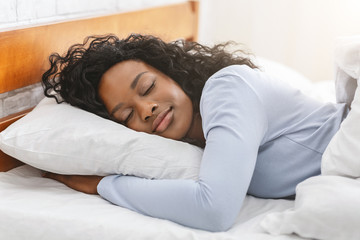Dear sleep, I know we had problems when I was younger…. But I love you now.
~Anonymous
One of the most irritating feelings is not being able to sleep when you want to. We lie down on our bed, keep tossing and turning, feel anxious as the clock keeps ticking. Ever wonder why sleeping has become a daily struggle for many of us?
Stress and anxiety are not the only reasons for sleeping issues. Our lifestyle choices and many unhealthy habits also damage our health and have a significant impact on our sleep.
Our love for internet wins over our need to sleep every single night. Similarly, caffeine and nicotine intake, poor diet, irregular sleep patterns, procrastination, and messy surrounding also contribute to this problem.
A global analytics firm, Gallup, created a poll and found out that 30% of people reported difficulty in falling and staying asleep a few times per month. Also, 6% experience insomnia almost daily.
Adequate sleep is vital for our body to function properly. It builds up our immunity and reduces the risk of heart disease, diabetes, and weight gain. All the while we are sleeping, our body undergoes restoration and strengthening.
WHAT SLEEP INDUCING HABITS CAN WE ADOPT?

Smart Bedtime Habits For A Better Night’s Sleep
Health experts often advise us of several lifestyle changes that we can adopt to have a better sleep at night. Without resorting to sleeping pills, these healthy practices can cure our sleep difficulties, also providing additional health benefits. Let’s take a look at some of the ways which help you doze off:
1. CREATE A SLEEP FRIENDLY, COMFORTABLE ENVIRONMENT
It’s hard to fall asleep when your room is brightly lit or messy. In contrast, a dark room that is decluttered and clean gives cozy vibes that help us relax. Make a routine to clear the mess before you lie down on your bed.
Keep your room temperature between 60 to 67 degrees Fahrenheit, as the National Sleep Foundation suggests. Check for any noises which may cause a disturbance.
A Harvard study concluded that the secretion of melatonin, the sleep-inducing hormone, is impacted by light. Therefore, please turn off all the lights as they hinder your efforts to doze off. You can also set the sleepy mood by using aromatherapy. Either rub an essential oil (jasmine, lavender, or bergamot) behind your ears or on your pillow for a night of quality sleep.
2. SWAP CAFFEINE AND NICOTINE WITH SLEEP-AIDING DRINKS
We all consume a significant amount of caffeine every day in tea or coffee. Caffeine acts as a stimulant and drastically affects our sleep.
A study found that drinking coffee before bed delays your internal body clock by 40 minutes. Other than that, nicotine, a drug released from tobacco, is also a stimulant and effects similar to caffeine. It is suggested to restrict your caffeine and nicotine intake, at least three hours before you sleep.
Instead, swap your tea, coffee, or cigarette with healthy, sleep-inducing drinks such as lavender tea, banana tea, or almond milk. Not only is this super-relaxing but has multiple health benefits as well.
Other than these drinks, cherries, walnuts, honey, and kiwi are also some foods that enhance sleep quality. You can try these if you have trouble falling asleep. There are also a lot of sleeping gummies that could help you fall asleep and enhance your sleep quality.
3. AVOID HEAVY MEALS BEFORE GOING TO BED
One cannot think well, love well, sleep well if one has not dined well.
~Virginia Woolf
No doubt, having a proper diet is essential for keeping your mind sharp and sleeping well. However, the timing of your meals is critical. A large, heavy meal, eaten just before bedtime is the worst thing you can do if you are already a light sleeper.
Metabolism tends to slow down in sleep, so a heavy meal can cause heartburn and indigestion. It will also be a trigger for weight gain as fats are deposited in your body while you sleep.
Have your dinner at least three to four hours before going to bed. If you feel hungry after that, eat a light snack instead of filling your plate once again. (see point number 2.)
4. WHAT TO WEAR FOR SLEEPING
Tight clothing is a big NO when you are about to sleep. Not only it makes breathing difficult, but it also warms up your skin temperature and often causes numbness. Whereas, loose, airy clothing such as pajamas and sleep shorts allow you to have a comfortable, sound sleep.
5. RELAXING TECHNIQUES
There are several ways to relax before going to sleep. Try the following and do them habitually if you love their effect:
- MEDITATION:
Research from Harvard University found that mindfulness meditation induces a relaxation response in participants leading to better sleep. It is a fact that the body will rest when the mind is settled.
Guided sleep meditation is a simple calming technique. You need to lie down, close your eyes, and focus on your breathing. You try to let go of any thought that pops up and focuses on breathing again. With meditation, you will notice an immediate stress release and a better quality of sleep.
- FOOT MASSAGE:
A relaxing foot massage before sleep will do wonders for your insomnia. Massage your foot with light pressure and circular movements of your index finger and thumb(with or without any oil.) The pressure points for inducing sleep and relaxation are the big toe and middle top half of your sole.
- YOGA:
Try yoga to improve your sleep. Yoga experts swear by some yoga poses, which can make it easier for you to fall asleep. The wide-knee child’s pose, the legs-up-the-wall pose, and the happy-baby pose are some popular asanas in this regard.
6. EXERCISE REGULARLY
Doing regular exercise not only keeps you fit, but it also boosts your immune system and enhances the quality of your sleep. According to a study conducted by SleepScore Labs, 30 minutes of exercise each day correlates with 14 extra minutes of sleep per night.
If you have a workout routine, you will fall asleep quickly and even wake up less during the night. But, don’t do any workout three hours before hitting the bed as exercise is a stimulant that boosts alertness.
7. READ A BOOK INSTEAD OF USING DEVICES
Can we all make a rule and put our phones, laptops, and tablets away when we lie down to sleep? According to the Goodbody sleeping facts, any light before bed is not suitable for getting off to sleep. However, the blue light emitted by tech devices is twice as bad!
On top of that, using social media just before going to sleep will make you stressed and restless, which is not at all a desired feeling for a peaceful sleep.
Rather than the use of technology, go back to the basics and read a few pages of a good book every night. Reading acts as a winding -down ritual, and lowers down cortisol levels, which help you fall asleep faster.
An Irish Proverb goes like, “A good laugh and a long sleep are the two best cures for anything.” All of the above tactics help you relax and unwind. Say bye to all the sleepless nights by adopting these habits and enjoy a good night’s sleep every day.
Author Bio:
Alycia Gordan is a freelance writer who loves to read and write articles on healthcare technology, fitness, and lifestyle. She is a tech junkie and divides her time between travel and writing.








